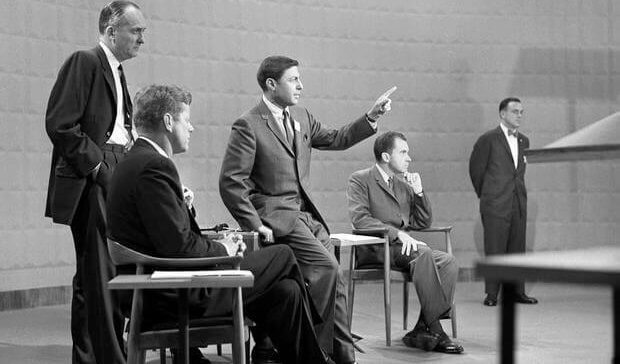The most common meaning of crossing your arms is to keep others away from you. However, this is only one of them. Read on and you’ll discover eight more.
1. The self-hug
You cross your arms many more times in public than in private. On these occasions, when you find yourself exposed in front of others, it acts like a hug for yourself, providing you with comfort.
Your intention isn’t necessarily to push anyone away. In fact, you just want to feel comforted. Therefore, if you see a person in this position, why not ask them if they’re okay? Because a self-hug is one of the automatic positions we adopt when we try to make ourselves feel comfortable.
2. Reducing stress
When you’re feeling stressed, crossing your arms is a great way for your hands to give you a comforting and reassuring squeeze in a very sneaky way.
Feeling this squeeze calms and reassures you. It’s a similar feeling to when you rub your hands. In this instance, it has nothing to do with comforting yourself or keeping others away, but alleviating your anxiety.
This sudden movement only lasts a few seconds yet provides you with a great emotional charge. In fact, it gives your body the message to calm down.
3. Warming yourself up
You might often think the person in front of you is crossing their arms because they don’t agree with you. However, sometimes there’s a far simpler situation. They might simply be cold.
When you cross your arms because you’re cold you tend to tense your shoulders and the upper part of your back. In addition, you might shrug your shoulders and keep them tense as a way of generating and maintaining heat.
4. Hiding feelings of insecurity
If you feel uncomfortable or threatened by others you might make this gesture as a sign of defense.
With this movement, you don’t lift your shoulders but push them forward and you hunch your body a little.
5. Feeling extreme fear

Crossing your arms can mean that you’re feeling extreme fear. Indeed, feelings of great concern cause you to cross your arms over your chest in order to protect your internal organs. This means you’re protected.
You often accompany this action with manipulative gestures. For example, touching your face and neck, pressing your lips, and demonstrating micro-expressions of fear.
6. Self-control
Many times you cross your arms when you feel angry or upset. It’s a way of containing yourself. One clear example of this type of ‘self-hug’ occurs in children when they’re asked to do something they don’t want to do.
With this gesture, you also allow yourself to communicate annoyance without having to say a word. Indeed, as an adult, you do it when you feel frustrated and might be struggling to control yourself at that moment. It doesn’t mean you want to distance yourself from others or put up a barrier.
7. Transmitting power

Do you know how to transmit power with non-verbal language? Employing a pose where you place your elbows out and fold your arms suggests a strong personality.
Crossing your arms makes your rib cage look bigger and more robust. This is more evident when you fold your arms across your chest rather than on your solar plexus.
8. Isolating yourself
This is the most common meaning and the one most associated with crossing your arms. Indeed, folding your arms in this way means you want to momentarily withdraw into an introspective state. In this way, you create both a physical and psychological barrier between yourself and others.
Non-verbal language is extremely important in society today. Nevertheless, some people are unaware of the many meanings that gestures can have. For this reason, they’re often interpreted in the wrong sense.
A person who crosses their arms may be seeking isolation. On the other hand, they could just be cold. In the first case, a hug wont help, but in the second it will.
9. Mirroring
Finally, it’s possible that the act of crossing your arms appears as a mirroring response to someone who’s in front of you. In fact, in most cases when you see two people, both with their arms crossed, you can assume that they feel empathically connected and are emotionally attuned to each other.
However, you mustn’t forget that each human being is unique and different. Similarly, there are many different reasons why people fold their arms. For this reason, you might find that using it to isolate yourself may not necessarily always work. Therefore, learning a little more about this kind of body language and other actions surrounding it could help improve the quality of your relationships.
The post Nine Meanings of Crossing Your Arms appeared first on Exploring your mind.



















Comments